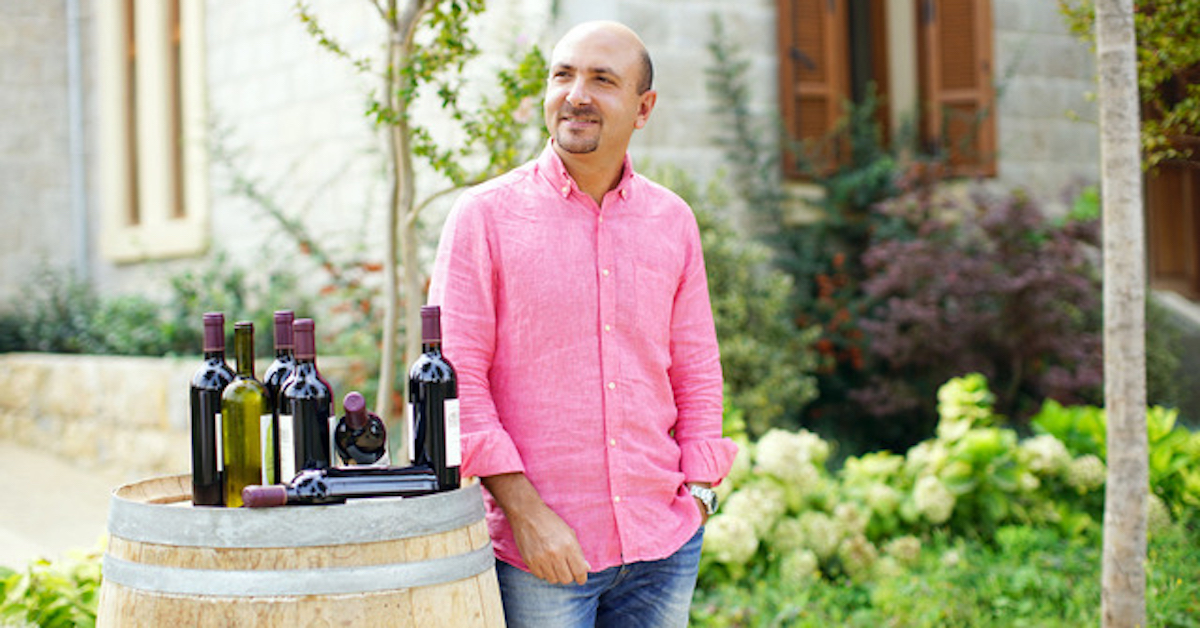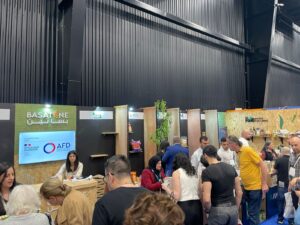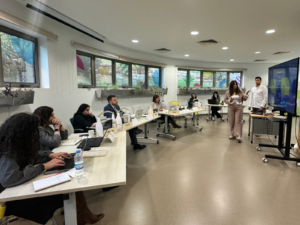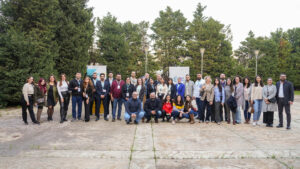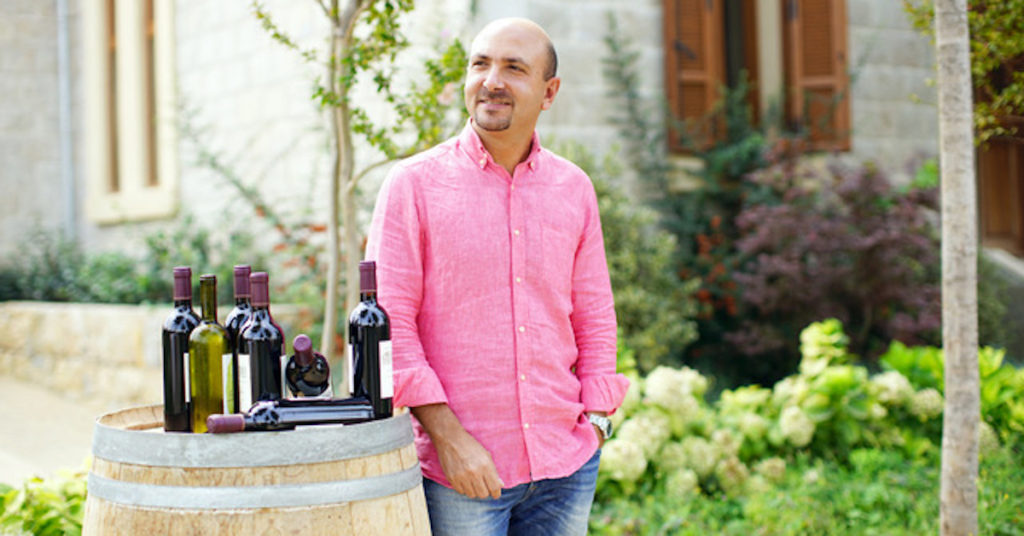
Selim Yasmine introduces himself as a marketer with a passion for wine, and for good reason. After a long career in marketing, Salim’s passion led him to develop 209 Lebanese Wine– an online platform that showcases, sells and delivers Lebanese wine to Lebanon and the world.
Selim starting his career in advertising and moved to market wines with one of Lebanon’s biggest distributors. He worked with local and imported wines, hard liquors and spirits, joining the team to open an elaborate wine shop with more than 500 selected wines and spirits. When opportunity led him to Dubai to work with a real estate giant, Selim followed. Another opportunity eventually led him back to Beirut to another real estate group, until Selim decided to launch his own company. “I decided to stop following companies to make me successful. I wanted to make myself successful.”
Wine is my passion
“I had many options. I had experience in real estate, but I did not see myself as a developer. I was a marketer through and through, but it was the start of the decline of traditional marketing and the newly shaped industry did not excite me. I wanted to follow my passion, do something where there was a problem I could solve.”
“Wine is my passion. I know how to sell it. Coming back to Lebanon I realized there was a real gap in the Lebanese wine scene. Before I left for Dubai, we used to count 5 or 6 wineries. When I came back and started connecting with the wine scene again, I could count almost 50 wineries! So, I thought, where are they? Where do you find them? You see them scattered around wine festivals, you discover new wines at dinner parties, you go to wine shops and you get to taste new Lebanese wine, but there was not one place that gathered them all. You can’t discover new brands without really looking for them.”
Selim’s initial idea was to become a marketing consultant for Lebanese wineries. Before launching, he visited with the owners to see if they had interest in outsourcing their marketing. His quick market study proved him wrong. “I realized that my initial idea would not work. Wineries do not have the capability to hire a market consultant. They are small, family owned, and marketing is not their priority.”
“I also found out that they struggled to get visibility and to increase their sales. Most of them sold at their winery and through personal contacts, but that doesn’t make a market. They asked me to take them to market: ‘I want to sell. How can you help me sell?’
This is when I realized that this was what I should be doing. I had 2 options: I could either create a distribution company or move away from the traditional retail scene and dive in head first into e-commerce. Wineries are already struggling to sell in the traditional market, so I thought of opening to the advanced market.”
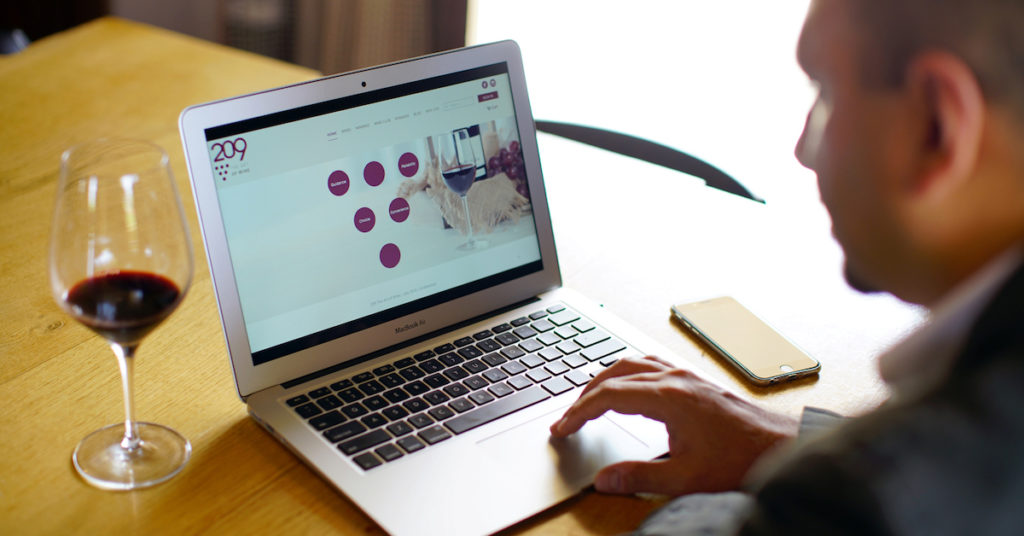
The state of Lebanese wine
From that 209Lebanesewine.com was born, an e-shop that carries wines from 60 wineries from all over Lebanon. Shoppers are encouraged to discover new wines, get educated on food pairing and shop based on their preference and budget.
While most of the shoppers are Lebanese, 209 has delivered orders as far as Korea. The website has a turnover of an average of 15000 bottles a year, with sales doubling every year. Selim explains that this growth is natural despite the growing economic crisis that the country is going through. “The overall consumption of wine is growing worldwide. It is perceived as a healthier option compared to other hard liquors. Lebanon consumes per capita much less than any other country in the world, so there is a market for converting people to wine drinking.”
For comparison, the per capita wine consumption in Lebanon is 1 L while in France it’s 42.5 L and in Greece 27 L. The next step in Selim’s growth plan is to expand beyond Lebanon, starting with Europe, all the while making sure that 209 Lebanese Wine is well positioned in Lebanon before venturing into export. Salim’s toughest challenge is converting visitors on his website to returning buyers. “The website receives around 150,000 visitors a year. Although people are very interested and curious, they are still reluctant to buy wine online.” Selim is currently working with digital marketing and e-commerce consultants to improve those numbers.
Boutique Wineries
The growing number of Lebanese boutique wineries seems to be of no surprise to Selim. “We have everything it takes to make good wine. We have the weather, the terroir, the soil, a fertile land, the know-how and the sophistication of the people.
People who have small pieces of land are not interested in traditional agriculture. Wine-making is an interesting option, yet a costly one. When small wineries make small quantities of wine, they have a huge fixed cost that is not being covered. They import the bottles, the cork, most of them import the vines and they pay taxes in and out, but most of them are not in it for the money. It’s an expensive hobby, a retirement plan. It does, however, increase the value of the land. Because it is not commercial and since they cannot produce in volume, their only choice is to make quality wines.”
Selim is playing his part, he hosts all these boutique wineries on the 209 Lebanese Wine platform.

The Journey of a Wine Entrepreneur
For the past three years, Salim’s journey as an entrepreneur has been full of adventure, successes, trials and errors. It also brought him to the Agrytech accelerator program where he joined the first batch in 2017 and made it to the third phase. “The Agrytech program was a source of knowledge for me thanks to the trainings, and contacts and many opportunities, in addition to the funding we received.” The program also gave him access to immersion trips to the Netherlands where he explored distribution, e-commerce, and logistics for operating in European markets. “I learned that the return on investment figures that we set as assumptions were much higher in Europe. The same marketing budget in Europe would get me more sales than in Lebanon because conversion rates for online sales are much higher: 1.5 to 2% in Lebanon compared to more than 5% in Europe. In other terms, 5 people out of 100 who visit the platform would buy in Europe versus 1 or 2 in Lebanon.”
While becoming an entrepreneur is not an easy road to take, Selim refers to his favorite quote often, as a reminder to charge through and as advice to anyone thinking of taking that road: ‘You will feel pain. You will cry before you get it. You will lose your friends. Your family will discourage you. People will hate you for no reason. You will almost talk yourself out of it, hundreds of times. You will doubt yourself thousands of times. You will think you’re going crazy. You will develop weird habits. You will lose money. It will all be worth it.’
Your Online Sommelier
Selim explains that “209 is essentially a community platform serving as your personal online sommelier, helping you pick and purchase the best bottle to suit your tastes, preferences and budget.” The website indeed has a blog section with tips as well as options to choose your wine based on food pairing and preferences, and accessories, so many wine accessories!
And for those still curious, 209 is the pantone color of red wine… a hint to Selim’s marketing and advertising background.
What are you waiting for to rediscover Lebanese wine? https://www.209lebanesewine.com


